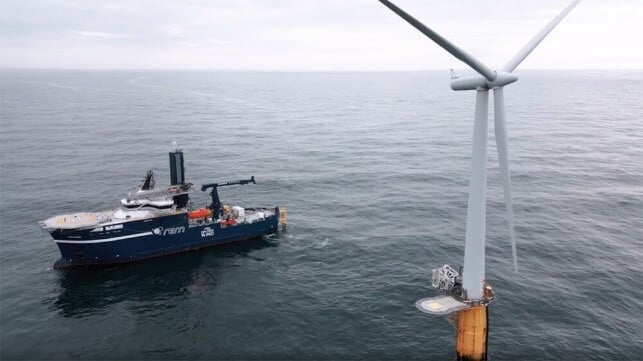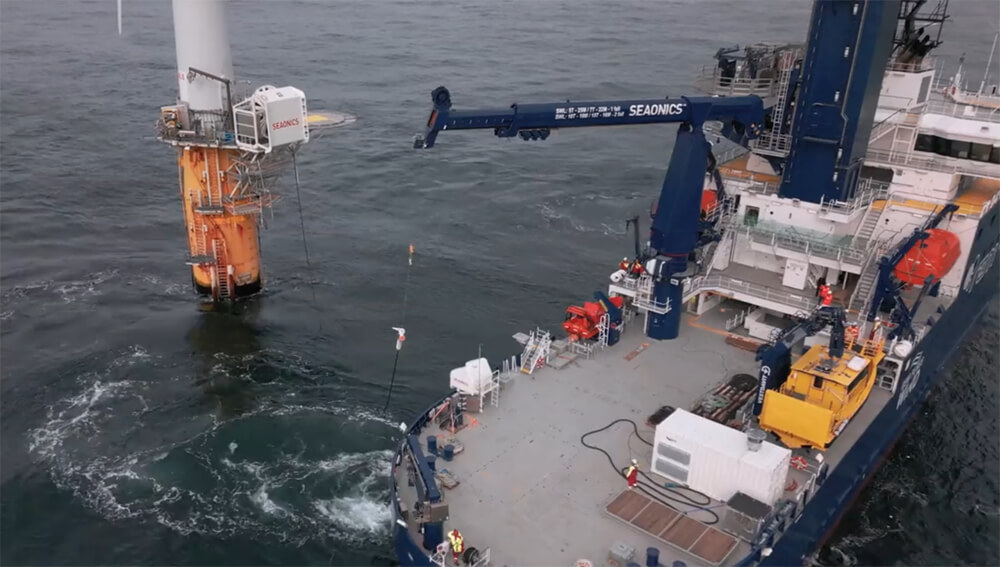Ocean Charger Completes Proof of Concept Testing for Offshore Charging

The Norwegian project called Ocean Charger reports it has successfully undertaken a broad range of proof on concept tests for the new technological solutions for energy transfer to battery-powered ships offshore. The project which is one of several efforts underway has finalized the prototype phase as it seeks to make possible zero-emission ship operations at offshore wind farms.
According to Norwegian shipbuilder VARD which is one of the leaders of the project, the technology is a critical enabler to deliver zero-emission ships for the offshore wind industry. The object is to develop the technologies required to operate fully-electric SOV at the wind farm without requiring the vessel to go to shore for charging.
One of the challenges to using battery-powered vessels in the offshore energy sector is the increasing distances from shore of the installations. In addition, the SOV is required to remain at the wind farm providing accommodations and a base of operations for operations such as maintenance at the site. Several projects have been exploring concepts such as charging buoys or ways of connecting the vessels to the power grid at the wind farm to provide recharging capabilities for the vessel’s batteries.

The tests were able to demonstrate the power connection in sea and weather conditions
The Ocean Charger project with a broad range of partners including VARD, Corvus Energy, Equinor, and Rem Offshore, received a 38 million NOK ($3.5 million) grant from the Norwegian government in December 2022 and officially launched in February 2023. The team explains they are combining existing battery technology with new systems and needed to prove the capability of connecting the vessel to the power sources.
Charging tests have been done in port with high-voltage charging of the ship’s batteries. Testing has also been done on the Ocean Charger offshore connection solution. They report that they successfully demonstrated the ability to connect and disconnect the cable under certain sea and weather conditions.
The tests were undertaken with a pioneering offshore vessel delivered in 2023 by VARD to Rem Offshore. Named Rem Power, the 5,800 gross ton SOV is equipped with a diesel-electric and battery hybrid propulsion system. It employs a new form of Kongsberg Rim-driven azimuth propellers as its primary propulsion system and magnetic motors that provide a compact, highly responsive, and energy-efficient thruster. The vessel is equipped with a Corvus energy storage system. During the tests, the 292-foot (89-meter) vessel was able to come alongside the specially outfitted wind turbine and connect a power cable for recharging.

High-power charging tests were conducted on shore as well as connections at the wind farm
“For us, it is extremely important to be a part of the Ocean Charger project. We can show what we have told for years,” said Ronny Pål Kvalsvik, COO of Rem Offshore. “Now we have partners bringing this along, and we can prove to the market that this is doable.”

that matters most
Get the latest maritime news delivered to your inbox daily.
According to VARD, by connecting the vessel to the power grid and charging the batteries regularly, the operational availability of emission-free vessel operations will be secured. The aim is to have the SOV in the field without using any additional energy sources.
The Ocean Charger project is moving forward to the next phase of its development. The partners are working to commercialize the technology.
